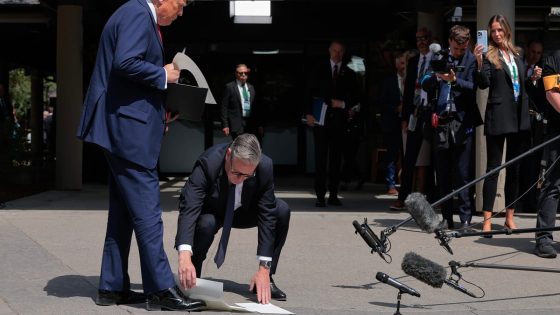Steel and aluminum tariffs will remain at 25 percent, delaying a planned reduction to 0 percent. This decision comes amid ongoing negotiations between the U.S. and the U.K., with both sides keen to finalize a trade agreement.
- Steel and aluminum tariffs remain at 25 percent.
- Ongoing negotiations to reduce tariffs continue.
- Car and aerospace tariffs are implemented.
- Trump claims U.K. is protected from tariffs.
- U.K. aerospace goods exempt from 10 percent tariff.
British officials are optimistic about continued discussions, as U.S. President Trump emphasized the importance of the deal. Standing alongside Labour leader Keir Starmer, he stated, “This now implements on car tariffs and aerospace of our really important agreement.”
In a statement made on June 17, 2025, Trump also hinted that Britain would be safeguarded from additional universal tariffs, citing his favorable view of the U.K. as a reason for this protection. This agreement includes exemptions for U.K. aerospace goods from the baseline 10 percent tariff on most U.S. imports.
This decision raises questions about the future of U.S.-U.K. trade relations. How will these tariffs impact American consumers and businesses? The ongoing negotiations could reshape the economic landscape for both nations.
- Tariffs remain a significant hurdle in U.S.-U.K. trade.
- Exemptions for aerospace goods may benefit U.K. manufacturers.
- Trump’s personal connection to the U.K. may influence negotiations.
As negotiations progress, stakeholders on both sides should remain vigilant and engaged. The outcome could redefine trade dynamics between the U.S. and the U.K.
































